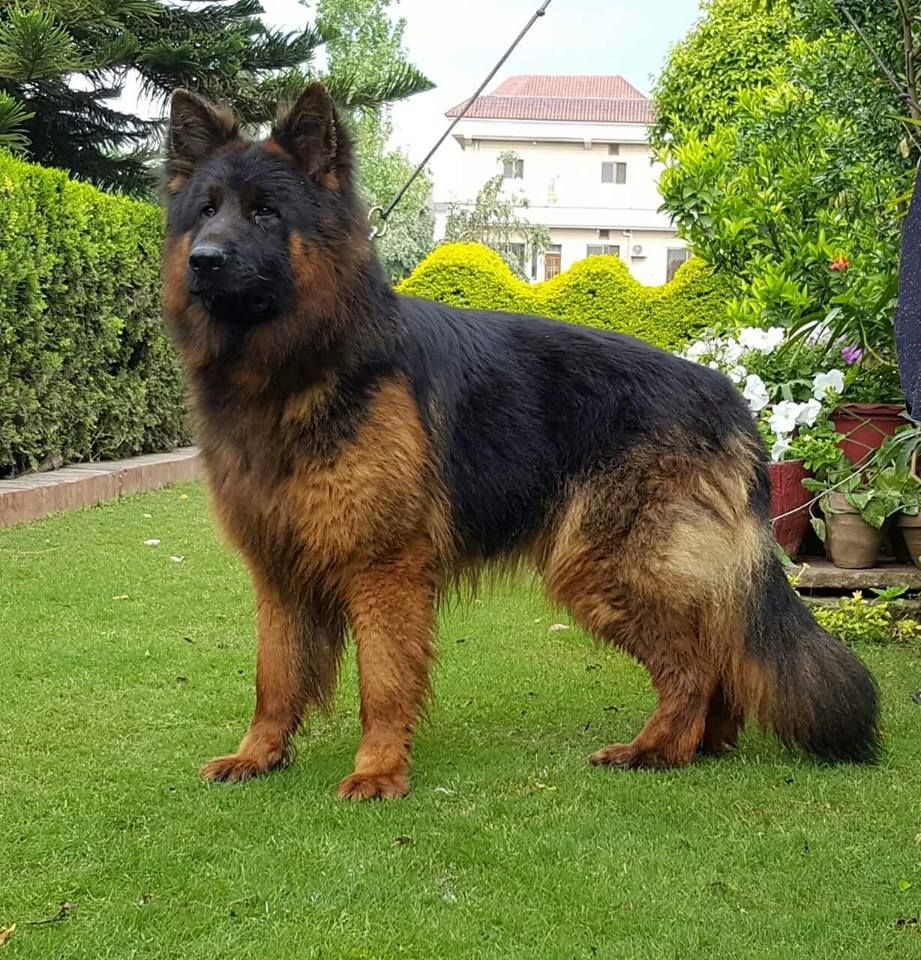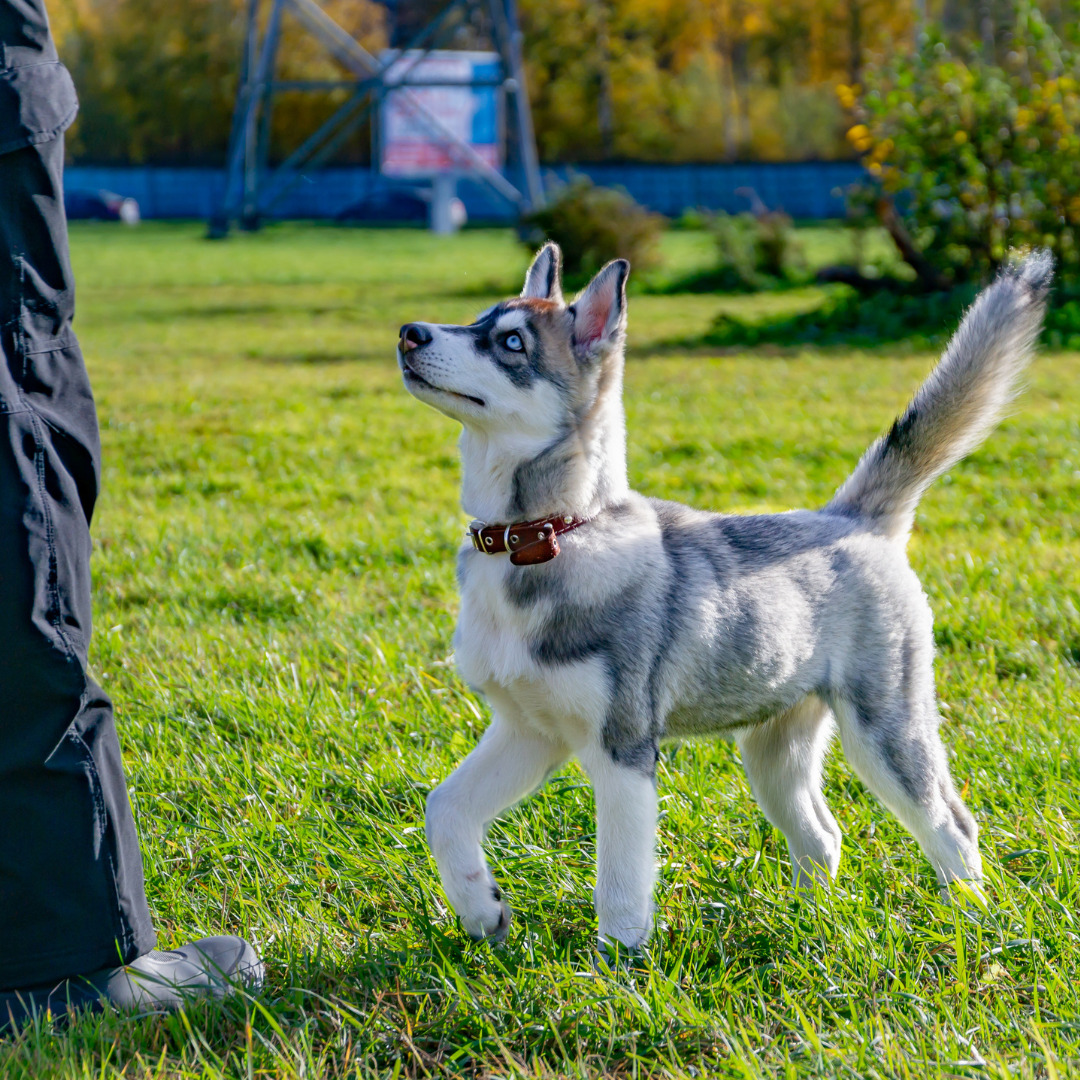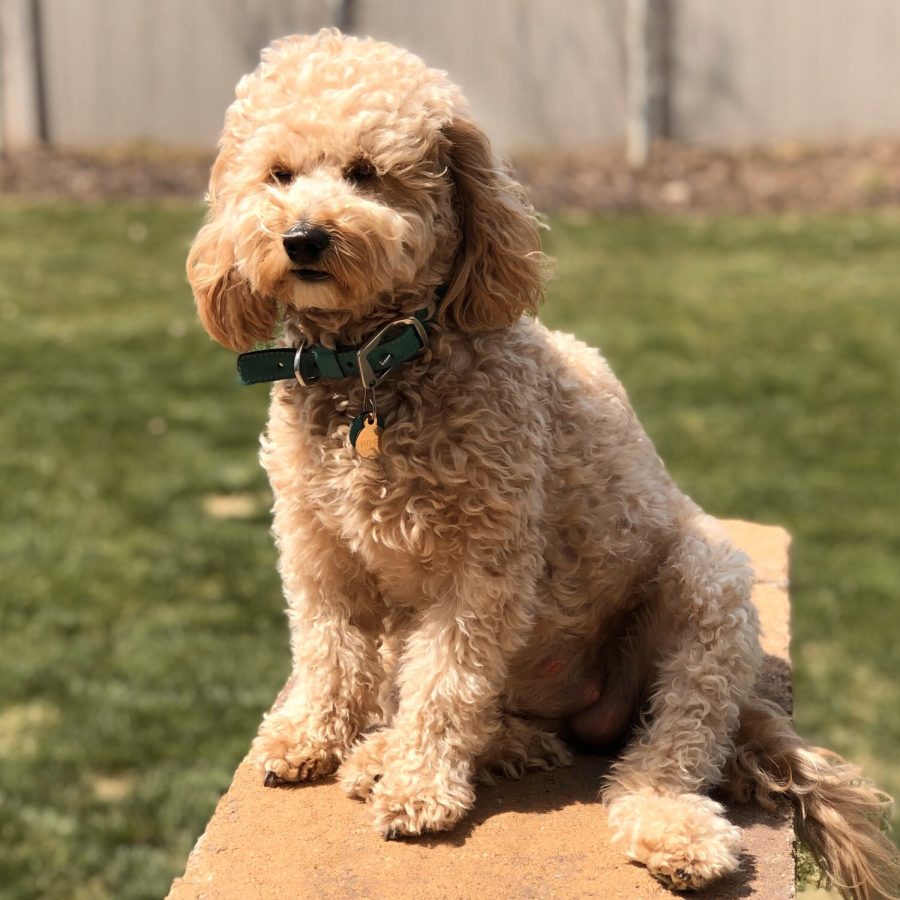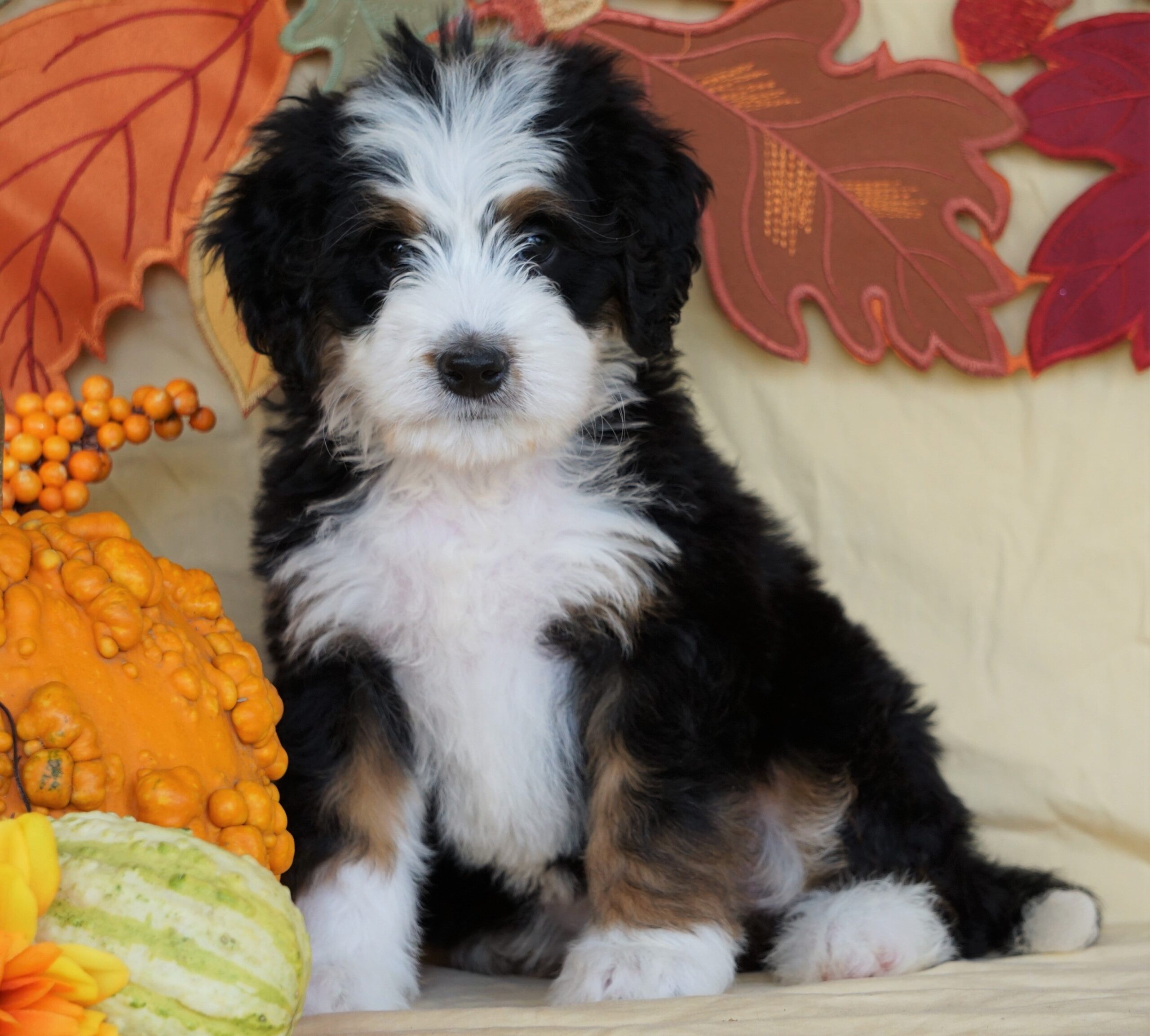The King Shepherd, a breed originating in the 1990s, unites qualities from German Shepherds and other breeds. They require rich protein and fiber diets, regular grooming, and similar care to German Shepherds. Recognized for loyalty and intelligence, these dogs need ample exercise in active homes. With standing heights ranging from 25 to 31 inches and weights varying from 75 to 150 pounds, these dogs boast an imposing presence. Owners cherish their protective nature and ease of training. Discover more details about this majestic breed’s health, temperament, maintenance, and unique characteristics by exploring further.
Health
The health of King Shepherds is a paramount consideration for owners due to their susceptibility to various genetic and acquired conditions. Common health issues in King Shepherds include Von Willebrand’s disease, thyroid problems, joint, eye, hip issues, allergies, and bloating in older age.
These dogs have an average lifespan of 11-13 years, with routine veterinary visits recommended to monitor and address any health concerns promptly. Their dietary needs should be rich in protein and fiber, with lean meats like chicken and fish being beneficial choices.
Grooming is essential for King Shepherds, requiring frequent brushing to prevent matting and knotting of their soft coats. Care for King Shepherds is similar to that of German Shepherds, as they are easy to train, intelligent, and require proper nutrition and regular exercise.
Ensuring the health and well-being of King Shepherds through attentive care, proper nutrition, and regular vet check-ups is crucial for owners looking to provide a fulfilling and healthy life for their beloved pets.
Breed History
With a dedicated focus on establishing a breed that embodies strength and vitality, the origins of the King Shepherd trace back to the collaborative efforts of Shelley Watts-Cross and David Turkheimer in the 1990s.
The breed was developed by crossing various dogs, primarily the German Shepherd, with potential inclusion of breeds like Alaskan Malamute, Great Pyrenees, and Akita. This mix aimed to create a larger, healthier version of the German Shepherd while reducing some of the health issues associated with the parent breed.
The King Shepherd is recognized by various dog associations and is related to the Shiloh Shepherds. These breeders worked diligently to ensure that the King Shepherd maintained the best traits of its parent breeds while also introducing unique characteristics that set it apart in terms of size, health, and temperament.
Through strategic breeding practices, they successfully established the King Shepherd as a distinct and valuable breed in the canine world.
Breed Appearance
Developed through a meticulous breeding program aimed at enhancing size, health, and temperament, the King Shepherd’s appearance showcases a robust and regal presence. This breed typically resembles the German Shepherd but is larger and thicker, with medium-length coats that shed frequently. The coat colors of King Shepherds range from red, brown, gray, to black, requiring regular grooming to prevent health problems. Their soft coats feel snuggly and add to their majestic look.
| Physical Characteristics | King Shepherds |
|---|---|
| Height | 27 to 31 inches (males); 25 to 27 inches (females) |
| Weight | 90 to 150 pounds (males); 75 to 110 pounds (females) |
| Coat | Long, course, and either straight or wavy |
| Coat Color | Black, white, tan, brown, gray, or silver |
King Shepherds exhibit calm and adaptable personalities, making them suitable for single-family homes with fenced-in outdoor spaces. They are great choices for owners with kids, as they are intelligent and easily trainable. While not recognized by the American Kennel Club, King Shepherds require attention and time due to their high-energy nature. Regular grooming and exercise routines are essential for their well-being.
Breed Maintenance
Efficient grooming practices are essential for maintaining the health and appearance of King Shepherds. With their thick, double coats that shed heavily, regular brushing several times a week is necessary to reduce shedding and prevent matting. Bathing your King Shepherd every three to four months can help keep their coat clean and healthy. Additionally, regular ear cleaning, teeth checks, and nail trimmings as necessary are important aspects of their grooming routine.
In terms of health maintenance, King Shepherds are prone to certain conditions like elbow and hip dysplasia, Von Willebrand Disease, hypothyroidism, and bloat. Furthermore, they may experience eye issues such as pannus, glaucoma, and corneal dystrophy. Ensuring that your home, schedule, and lifestyle can accommodate the needs of a King Shepherd is crucial before bringing one into your family. Researching responsible breeders for a puppy purchase or considering adoption from a reputable source can also contribute to the health and well-being of your King Shepherd.
Temperament
The temperament of King Shepherds is characterized by their mellow disposition, making them adaptable companions for various lifestyles. When considering the temperament of this breed, it’s essential to understand the following key points:
- Loyalty: King Shepherds are known for their unwavering loyalty towards their owners, forming strong bonds with their families.
- Protectiveness: These dogs exhibit a natural protective instinct, making them excellent guard dogs who will alert their owners to any potential threats.
- Playfulness: Despite their protective nature, King Shepherds also have a playful side, enjoying interactive playtime and engaging in activities with their family members.
- Trainability: Their intelligence and eagerness to please make King Shepherds highly trainable, responding well to positive reinforcement training methods and commands.
Understanding these aspects of the King Shepherd’s temperament can help potential owners gauge whether this breed aligns with their lifestyle and expectations.
Activity Requirements
In light of the King Shepherd’s adaptable temperament, understanding their activity requirements is vital for potential owners seeking to provide a fulfilling lifestyle for this breed. King Shepherds are high-energy dogs that require a significant amount of exercise to stay healthy and happy. They thrive in active, single-family homes with plenty of outdoor space where they can run and play. Ideally, these dogs should receive at least one hour of exercise daily to help channel their energy and prevent boredom-related behaviors.
Due to their intelligent nature, King Shepherds also benefit from mental stimulation in their exercise routines. Engaging activities like obedience training, agility courses, or interactive play sessions can help keep their minds sharp and prevent behavioral issues. It is essential for owners to provide a variety of physical and mental exercises to meet the King Shepherd’s activity needs adequately.
Furthermore, regular grooming is necessary for King Shepherds due to their thick, double coats that shed heavily. Brushing several times a week, baths every three to four months, ear cleaning, teeth checks, and nail trimmings as needed are essential grooming tasks to maintain their coat and overall health.
Food Consumption
How does the King Shepherd’s diet contribute to their overall health and well-being?
Proper nutrition plays a vital role in maintaining the health and well-being of King Shepherds. Here are key points to consider regarding their food consumption:
- Balanced Diet: King Shepherds require a balanced diet rich in protein, vitamins, and minerals to support their energy levels, muscle development, and overall health.
- Portion Control: Monitoring food portions is crucial to prevent obesity, which can lead to various health issues such as joint problems and heart conditions.
- Quality Ingredients: Opt for high-quality dog food with lean meats like chicken and fish, avoiding fillers and artificial additives that may cause allergies or digestive issues.
- Hydration: Ensure your King Shepherd has access to fresh water at all times to support digestion, nutrient absorption, and overall hydration levels.
Height & Weight
When considering the physical attributes of King Shepherds, their height and weight play significant roles in defining this hybrid breed’s characteristics. King Shepherds typically stand between 27 to 31 inches tall for males and 25 to 27 inches for females. In terms of weight, male King Shepherds range from 90 to 150 pounds, while females weigh between 75 to 110 pounds. These dimensions make them larger than their German Shepherd ancestors, contributing to their imposing presence and sturdy build.
The height and weight ranges of King Shepherds reflect their strength, agility, and capability to perform various tasks, from being excellent service dogs to loyal family companions. This breed’s size requires space to move around comfortably and engage in daily exercise routines to maintain optimal health. Additionally, their weight can impact dietary requirements, with a balanced diet rich in protein and fiber recommended to support their muscular frame. Regular monitoring of their height and weight is essential to ensure they remain within healthy ranges and thrive in their environment.
Owner Experiences
Pet owners who have welcomed a King Shepherd into their homes often share enlightening insights into their experiences with this hybrid breed. Here are some common themes reported by King Shepherd owners:
- Loyal Companionship: Many owners praise the King Shepherd for its unwavering loyalty and devotion to their families, often forming strong bonds with all members.
- Protective Nature: King Shepherds are known for their protective instincts, making them excellent watchdogs who are always alert to their surroundings.
- Playful Demeanor: Despite their size, King Shepherds have a playful and energetic side, enjoying interactive playtime with their owners.
- Training Ease: Owners appreciate the King Shepherd’s intelligence and quick learning ability, making them relatively easy to train with consistent, positive reinforcement methods.
Conclusion
In conclusion, the King Shepherd, a hybrid breed with German Shepherd lineage, requires diligent health care, grooming, and ample exercise. Known for their intelligence and adaptability, these regal dogs thrive in active households.
Prospective owners should consider the breed’s exercise needs, grooming requirements, and potential health concerns before welcoming a King Shepherd into their homes. With a lifespan of 11 to 13 years, these versatile companions can make excellent additions to the right family.




